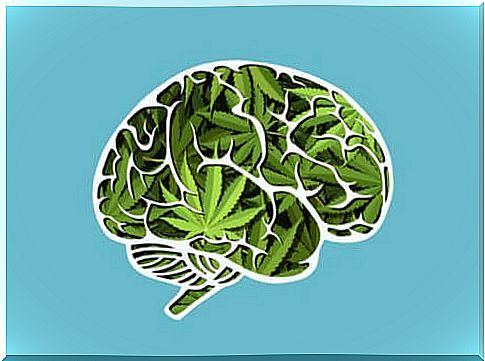The Long-term Effects Of Cannabis On The Brain

The consumption of cannabis is a controversial topic. There are many studies on the benefits and side effects of this plant. More and more countries are legalizing cannabis. However, many experts question the effectiveness of medical marijuana. Are medical marijuana and other marijuana products useful? Are they harmful? What are the long-term effects of cannabis on the brain?
Cannabis is extremely popular as a recreational drug. It is also widely used as medicine. Essential oils and other cannabis products are popular for treating chronic pain or epilepsy. Nevertheless, a new study warns that long-term consumption of cannabis can cause brain damage.
Prolonged use of cannabis can cause brain damage
Researchers from the Universidade de Lisboa in Portugal and Lancaster University in England have recently conducted a study on the possible dangers of long-term cannabis use. They published their results in the Journal of Neurochemistry . Their findings indicate that regular cannabis use can damage memory.
They observed the effect that WIN 55, 212-2 had on the brains of mice. This is a compound that is similar to cannabinoids. They found that long-term exposure to this drug caused “significant memory disorders”. The mice they studied could not distinguish between a known and a new object.
Before we continue, let’s prepare something. The term cannabinoids refers to certain chemical substances that act on the cannabinoid receptors in the body and brain. They have similar effects to those caused by the plant Cannabis sativa (hemp or marijuana).

Long-term effects of cannabis on the brain
Researchers also used brain images to further investigate the effects of cannabis. They saw that this drug is derived from cannabis-laden areas of the brain that are responsible for learning, storage and memory access.
Chronic exposure to this substance affects the brain even more. It changes the communication between the areas of the brain that drive learning and memory. “Our work clearly shows that long-term cannabinoid intake, when not used for medical reasons, has a negative impact on brain function and memory, ” the researchers explained.
Ana Sebastião, lead researcher in the study, explains: “It is important to understand that the same medicine can restore balance under certain disease states, such as in epilepsy or multiple sclerosis, but can cause marked imbalances in healthy people.”
Is it possible to reduce the side effects of medical cannabis?
The study’s findings come from a previous study by Sebastião’s team. That study showed that one of the long-term effects of cannabis on the brain was that it affected recognition memory. This is the type of memory that allows you to remember famous people or objects.
The researchers in Sebastião’s first study suggested a way to compensate for these negative results. Certain caffeine-related medications can counteract the effects on memory. “These results are very important for the development of pharmacological strategies aimed at reducing the cognitive side effects of current cannabinoid-based therapies, which have been shown to be effective against several nervous system disorders,” explains Sebastião.

Neil Dawson, co-author of the study, believes that this brings something new to the table. “This work provides valuable new insights into how long-term cannabinoid exposure adversely affects the brain. Understanding these mechanisms is key to understanding how long-term cannabinoid exposure increases the risk of developing mental and memory problems. ”
To conclude, the long-term effects of cannabis on the brain can be negative. However, researchers are still investigating ways to maximize the benefits of medical marijuana. Only time will tell whether they will succeed.









